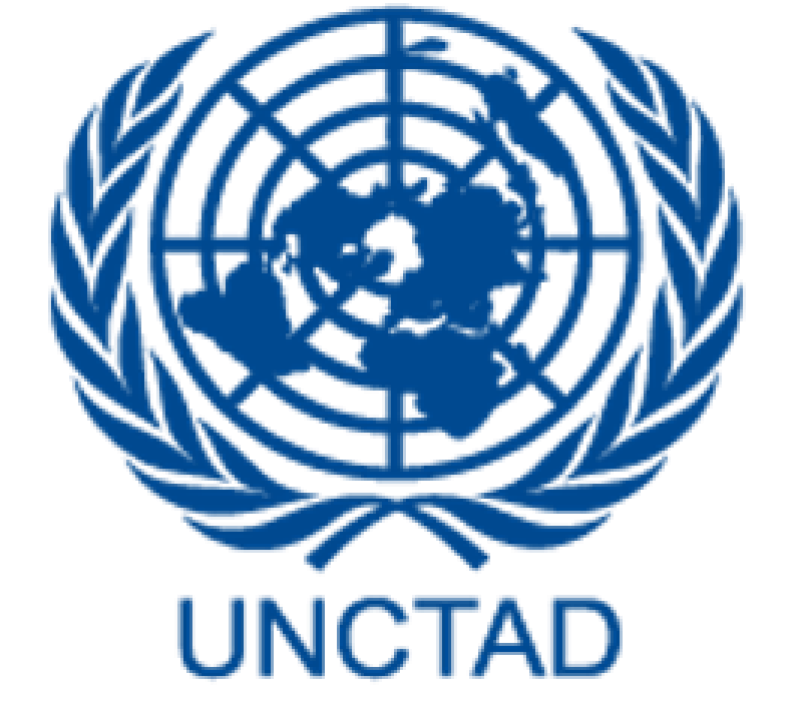- Jamaat condemns Khamenei’s killing, holds protest rally in Dhaka |
- Iran to pick next supreme leader in ‘one or two days’ |
- Bangladeshi among 3 killed, 58 hurt in UAE in Iranian attacks |
- US-Iran Tensions Raise Energy Risks for Bangladesh |
- UN Chief Urges Action to Halt Mideast Escalation |
South being left behind by unjust int’l order – UNCTAD SG

UNCTAD logo
Penang, 26 Jan (Kanaga Raja) — While the Global South is now a much stronger force than it was 60 years ago, it is being left behind by an international order that is still unjust, Ms Rebeca Grynspan, the Secretary-General of the UN Conference on Trade and Development (UNCTAD), has said.
In a statement at the Third South Summit of the Group of 77 and China that took place in Kampala, Uganda on 21 to 22 January 2024, Ms Grynspan said “on the one hand we have the indisputable truth that the Global South is now a much stronger force than it was 60 years ago.”
The global South now represents around 58% of all world economic output (in purchasing power parity) and South-South trade represents about a third of all trade, she said.
“For many years poverty and the Human Development Index improved, achieving important milestones.”
On the other hand, she said the Sustainable Development Agenda is about leaving no one behind; and yet, in the metrics that matter most, the South is being left behind.
Ms Grynspan said the South is being left behind by an international order that is still unjust:
* an order where those who did the least to cause climate change are the ones who pay the most for it;
* an order where vaccines are not shared during a pandemic;
* an order where divides widen with each technological advancement;
* an order where access to affordable finance, crucial for development, is denied only to those who lack reserve currencies and when shocks hit are forced into ever greater piles of debt aggravated by rising interest rates imposed by the central banks of the reserve currencies countries.
As a result, only 15% of all Sustainable Development Goals are on track, and 3.3 billion people now live in countries that spend more on debt servicing than on either health or education, said the Secretary-General.
“Cascading crisis not of our doing have set us back in some cases decades in our achievements,” she added.
“Our current system is nearing its limit. While in the last six decades the global economy has decentralized, the governance systems that underpin it have not,” said Ms Grynspan.
“We still operate within an institutional framework created at a time where most African countries had not yet become independent,” she added, citing Uganda as an example.
Illustrating this point, Ms Grynspan said that in 1945, the five permanent members of the UN Security Council constituted 10% of the organization’s members; today, they are only 2.5%.
At their foundation, the boards of the IMF and the World Bank had 12 seats for a total of 44 countries.
Today, each board has 25 seats representing 190 countries; to maintain the same proportion of representation the Boards of these institutions will have to double, she added.
At the IMF, developing countries hold 41% of the votes while generating 58% of all GDP (in PPP) and having 86.4% of the world population.
In comparison, the advanced economies have just 13.6% of the world’s population, and yet have 59.1% of the votes, said the UNCTAD chief.
She said China accounts for about 18% of the global economy, yet it enjoys just 6% of the IMF’s voting share, Ms Grynspan added.
She said that this massive representation issue highlights a truth that the UN Secretary-General underscored in Kampala: “Let’s face it: those that benefit most from the present global governance system are unlikely to lead its reform. Momentum for change must come from you, the South”.
This Third South Summit provides a unique opportunity to do just that, Ms Grynspan added.
Global growth is slowing down, as a result of weak rates of growth of trade and investment specially affecting developing countries, she said.
“The summit of the future will put these challenges in the multilateral discussion.”
She pointed to going beyond GDP to measure development, to push for the necessary reforms in the international financial architecture, to look for a governance system for AI that will enhance its potential without putting all humanity at risk.
She said these discussions are not just theoretical or abstract. “They are about the lives of billions of people, the overwhelming majority of which live in our countries.”
“In closing, let us carry forward a sense of hope and a call to action. We have the knowledge, the resources, and the collective will to create a better world and reinvigorate the multilateral system.”
“Whatever the contradictions, we are in a much better place to make a difference today than 60 years ago. But time is running out,” she said.
She expressed hope that the Third South Summit will be a milestone for stronger partnership, for a better and stronger multilateral system and for deeper cooperation between UNCTAD and the G77 and China. - Third World Network

